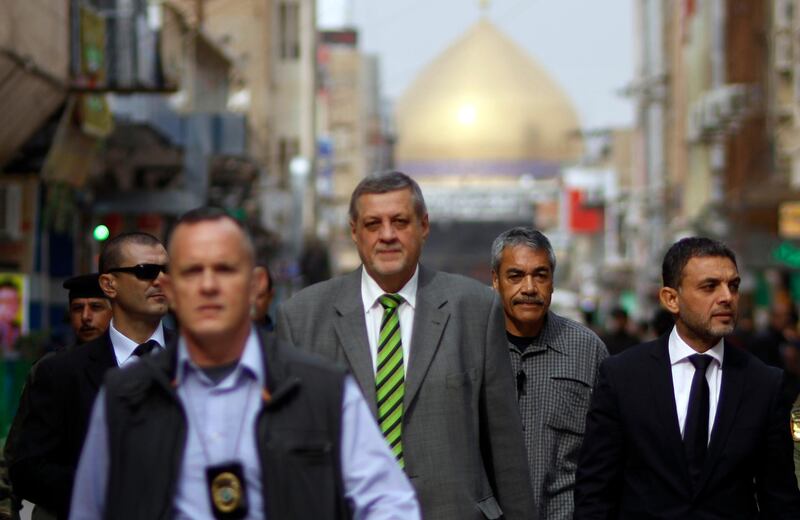The United Nations Assistance Mission for Iraq (UNAMI) said on Sunday evening that violence across Iraq is lower than at any point in the last six years.
Figures showed that a total of 41 Iraqi civilians were killed and another 73 injured in acts of terrorism, violence and armed conflict in Iraq in November 2018, according to the report.
“These are not just figures. They are human beings with families. But these figures, sad as they are, also reflect the continuing downward trend in the level of violence as the country recovers from its fight with terrorism and presses ahead towards a stable, prosperous future,” Jan Kubis, the UN's Iraq envoy, said in a statement.
Baghdad was the most affected with 55 civilian casualties, with 23 people killed and 32 others wounded. The capital was followed by Nineveh with eight people killed and 19 injured and, in Anbar, four people were killed and 15 injured, according to the report.
The figures include ordinary citizens and others considered civilians at the time of death or injury, such as police in non-combat functions, civil defense, personal security teams, facilities protection police and fire department personnel.
Mr Kubis said the “continuing loss of life is regrettable but the latest figures are the lowest since UNAMI began publishing them in November 2012”.
______________
Read more:
Iraqi cleric Moqtada Al Sadr warns of ISIS resurgence in Mosul
All aboard for Fallujah: rail link with Baghdad back on track
Three people killed in Mosul car bombing
______________
The highest number of casualties was seen between June and October of 2014 with an average of 1,200 people killed each month and thousands injured.
ISIS fighters overran nearly a third of Iraqi territory, including Mosul, the country's second largest city, in the summer of 2014.
Baghdad declared victory over the extremists last December after more than three years of combat operations that drove the fighters from all of the territory they once held.
Former Prime Minister Haider Al Abadi said Iraqi forces were in full control of the country's border with Syria, the last area with any significant presence of the extremist group's fighters.
But the insurgents continue to carry out ambushes, assassinations and bombings and still poses a threat along the Syrian border.
ISIS sleeper cells remain active across Nineveh, Salahuddin, Diyala and Kirkuk provinces.
The development comes as parliament is still in deadlock over corruption allegations, the 2019 budget and the appointment of key ministerial positions such as interior, justice and defence.
Not only does the new government have an immense task to deal with in rebuilding a country ravaged by the war against ISIS, fierce sectarian infighting and the US-led 2003 invasion. It will also have to deal with the scourges of corruption, power shortages and decaying public services.






